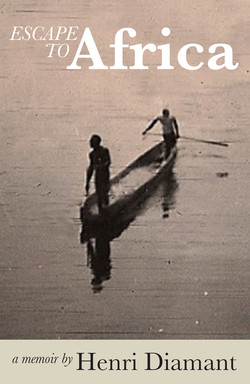Читать книгу Escape to Africa - Henri Diamant - Страница 10
На сайте Литреса книга снята с продажи.
Оглавление04. My Father
Father, together with his brother and sisters, attended a public school in Znojmo, They lived in town all week long, and came home only weekends because grandpa’s horse and buggy couldn’t possibly make the trip each day. They either lived with some relatives in Znojmo, or were placed in a private boardinghouse. I do not know which.
It was during the dismal year of 1914 that father graduated from high school, just as Europe was thrust into World War I.Then, when the time came to conscript all men born in 1900, father was mobilized by the Austrian military. However, had he been born but a few hours later, I believe that he would have missed the draft altogether and would have never fought in the war. These few hours would have shifted his name from the list of 1900 (remember that he was born December 31, 1900), over to the subsequent list of 1901, the year that should have escaped the draft because the war was winding down at that time. As it was, father reported to the army in the early part of 1917 and, after a brief period of basic training, found himself with the Austrian Expeditionary Force fighting on the Italian front.
Ultimately, the War that was to end all Wars ran its sad course, and a treaty was signed in the Hall of Mirrors, inside the Palace of Versailles, on the outskirts of Paris. The signing took place on November 11, 1918.
The birth of Czechoslovakia was one of the upshots of Austria’s defeat. The new nation united the provinces of Moravia, Bohemia and Slovakia, and its young government immediately embarked on molding the republic into one of the most liberal and progressive countries of Europe.
But the country also required the formation of a national army, and the republic lost no time drafting its young men into military service. And guess who was drafted for a second time in his young life? Father eventually graduated into a full-fledged dragoon (a heavily armed cavalryman), and spent two years in the Czech army before reverting to civilian life at the end of 1922.
Although I have only faint memories of father’s accounts of his years in the Czech army, I recall distinctly his comments about the horses that were used by the cavalry. Evidently some of them were conscripted, just like the men, and at times their previous lives came to haunt inexperienced riders during basic training. Most troublesome were the horses that had worked on daily delivery routes, such as milk runs. They were conditioned to stop on their own, without any prodding, in front of customers’ houses, and remain standing in place until the produce was taken to the front door and the driver came back to the wagon. Apparently, there were times when the man fell asleep, and it was left up to the horse to stop and wait patiently until his master delivered the goods. Problems arose when a new regiment went on field trips, and rode through a town known by one of these horses. The animal, still unfamiliar with military life, responded to his original training, and did what he was taught to do, he stopped dead in his tracks whenever he came across a familiar house. Of course, he refused to budge until his rider dismounted, went to the door and climbed back in the saddle. Think how humiliating and disconcerting that must have been for the unseasoned dragoon.
